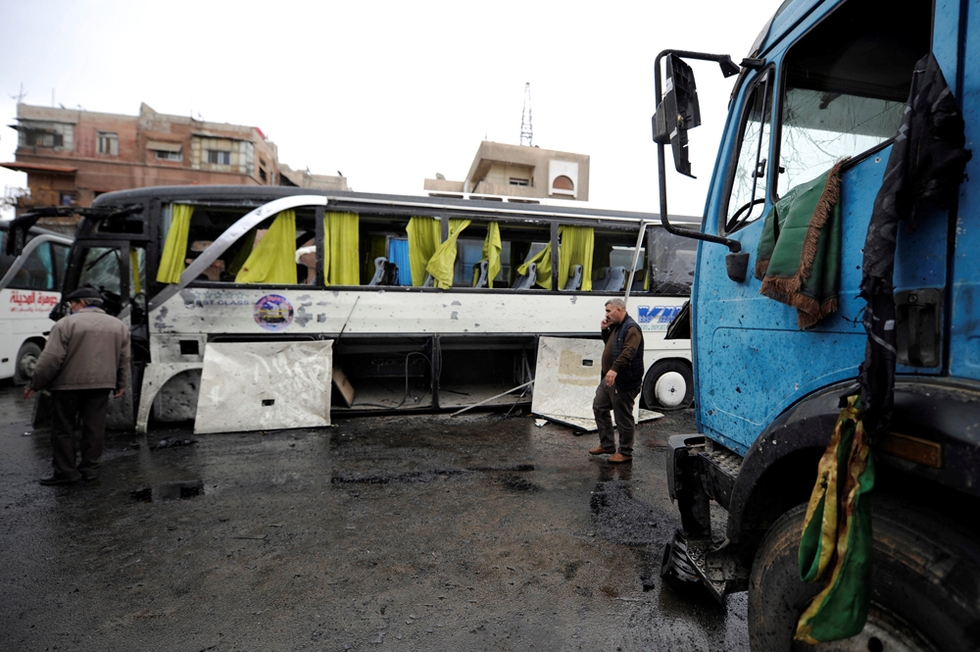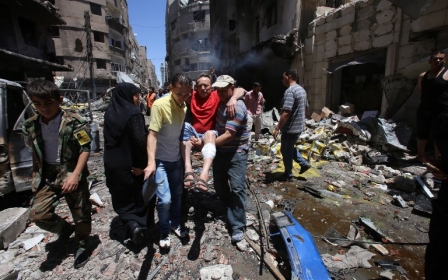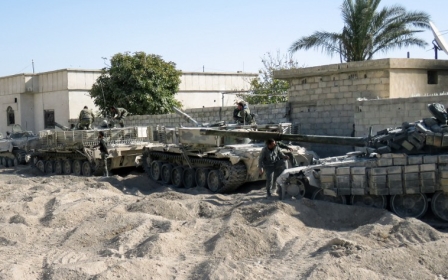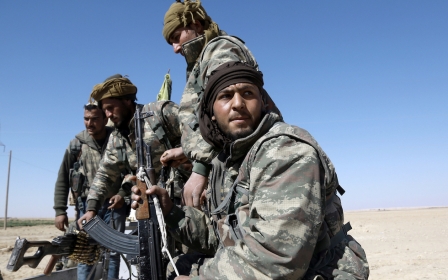Former al-Qaeda group claims Damascus pilgrim bombing

Syria's former al-Qaeda affiliate Fateh al-Sham on Sunday said in a statement it was behind twin bombings targeting Shia pilgrims in the centre of Damascus that killed 74 people.
"On Saturday... a twin attack was carried out by two heroes of Islam... in the centre of the capital Damascus, killing and wounding dozens," the statement said.
Without elaborating, it called the bombings "a message to Iran and its militias".
Iran and the Tehran-backed Hezbollah movement of Lebanon are close allies of the Syrian government.
The Syrian Observatory for Human Rights said 43 Iraqi pilgrims were among those killed when a roadside bomb detonated as a bus carrying pilgrims made its way through the Ban al-Saghir area of Damascus's famed Old City and a suicide bomber blew himself up.
The Britain-based monitor said 11 bystanders and eight children were among the dead, as were 20 members of the pro-government security forces.
State television gave a toll of 40 killed and 120 wounded by "two bombs detonated by terrorists," while Iraq's foreign ministry said about 40 of its nationals had died.
In January, Fateh al-Sham Front also claimed responsibility for twin suicide bombings in the high-security Kafr Sousa district of Damascus that killed 10 people, eight of them soldiers.
Damascus, stronghold of President Bashar al-Assad's government, has been largely spared the violence that has rocked other major cities in Syria's six-year war.
But periodic bombings have targeted Shia shrines and were subsequently claimed by Sunni militants, including the Islamic State group.
New MEE newsletter: Jerusalem Dispatch
Sign up to get the latest insights and analysis on Israel-Palestine, alongside Turkey Unpacked and other MEE newsletters
Middle East Eye delivers independent and unrivalled coverage and analysis of the Middle East, North Africa and beyond. To learn more about republishing this content and the associated fees, please fill out this form. More about MEE can be found here.




